A Portrait of Tragedy (Chapter 6) Read online
Page 2
start of their relationship, having formed a personal bond between one another. Had he clearly understood her motives, he would have returned regardless. The Lord favors this type of devotion, and hopes for that dedication to be shown toward Him.
As an evangelist to those in tribulation, Lace has a responsibility to bear concern, with a willingness to give his all. The allegiance he exhibits in the midst of accomplishing goals reflects his readiness for expansive servitude to the Lord.
The cold steel blade gripped in the hands of Judy pierces through Lace’s chest.
Lace, in his glorified state (an eternal body designed for everlasting life) is given a new name upon his arrival to heaven. It is a temporary title, during his extended time of servitude. The name “Snare” represents his recruitment, as a capturing instrument to try the most heinous of individuals, and force their repentance. Once snared, there is no hope of their escape. He is their last opportunity at reform, before they either ascend into Heaven, or arrive at a realm where no soul has ever escaped from (Luke 16:19-31). The moment Snare stands before the throne of the Father, his life replays in reverse. He watches, as though a spectator, the events that transpired during his former life, when he went by the name Lace, and waywardly attempted to reclaim the locator, to return home. He sees himself armed with a primitive weapon, the AK-47, as he makes his way through the heavily guarded grounds of the diamond dealer’s estate…
In a perfect world, claimed to be what the Returned Messiah rules over, you’d expect it to be a weapons-free society. The definition for weapon is as follows…
1. Device designed to injure or kill. A device designed to inflict injury or death on an opponent.
2. Something used to gain advantage in a situation.
3. Animal’s protective part. Zoology. An animal part used for defense or attack.
If you will, observe that the second of four definitions for poison in the Encarta Dictionary is: Negative Influence. Something that exercises a powerful destructive or corrupting force, especially in an insidious way.
Consider poison as a weapon.
Depression-stricken individuals will self-administer toxins for personal ruin. Any chemical in excess can be utilized in a destructive manner. Aspirin in high quantities becomes fatal when a depraved individual consumes the full contents of a 500-capsule bottle. Following this tragedy, do we limit the quantity of Aspirin that legitimate pain sufferers may obtain?
If regulated, others who are mentally sick will utilize alternative means such as suffocation, while rational people are chastised by this ban…initiated from an unstable person’s insignificant lack of control.
Those who campaign for infringing measures to become legislate suffer from a similar disease of the mind, compared to those with suicidal tendencies, using neglect as justification to penalize those around them. They determine it is their role as self-savior to take drastic action, exhibiting dictator-like characteristics.
Look around you. All personal items you see can be used as an instrument to end a life. A depraved individual is not deterred by banned devices. If knives were illegal, and unattainable, do you suppose Judy’s hostility would have diminished and she would have let Lace live? The device used is not responsible for tragedy, but rather the persons involved.
The mentality of an individual who would carry out such atrocities against another reflects their separation from humanity. They are a species digressed in their mindset, dealing with a distorted condition controlled by evil intent, unconcerned with integrity, honor, and respect. Their character wilts inside. Their pride draws them to become close to people who share inspiration, replicating that influence and falsely professing those admirable traits as akin to their own. Modeling or mimicking is something we naturally do. Those blind to the examples Jesus teaches wander in a disoriented state of egotism, believing they’re free to act out selfish rage or anger.
Countless victims have suffered at the hands of such violent offenders, who discriminate at random against their prey. Certain onlookers assess criminal behavior as viable cause, rationalizing the perpetrator’s actions, by stating the sufferer deserved the administered brutalities for their previous wrongdoings, or for putting themselves in that situation, and dismiss the violence by putting blame on the victim…saying they brought the carnage upon themselves. Is this sane rationalization…or the effects of a poisonous, mental malady?
Rather than subjection to torture or imprisonment, Judith is labeled as a murderer. This can lead to social ostracism. When the Messiah’s commandments are broken those actions display on the individual’s outward appearance. Because she took the life of a beneficial leader in the community, others will know of her wickedness by the marks which appear on her hands and forehead. Judith abandons the apartment, forced to stay in hotels.
The way life operates, once a couple is married, responsibility falls on the husband to provide for his spouse. Judy has limited control when it comes to acquiring wants. With the manufacture program formatted for Lace to operate, the household items diminish when he departs from this world. Now Judith must seek alternative means to supply her desires.
She partners with another woman. They travel together under the guise that Judith is vacationing with her husband and his mistress, Lidia. Judith, dresses in professional attire, explains to the gentlemen who inquire, that her husband demands that she dress as such, while Lidia is permitted to clothe in leisure gowns.
Disbelieving that anyone would provide for her out of the goodness of their hearts, Judith becomes involved in unsavory situations, and performs tasks for men in exchange for favors. She is soon labeled as a harlot. Though Judith gets all that she wants, the accomplishments never fill the empty portion in her life. Assuming this lack of fulfillment is due to the absence of her husband, she constantly seeks temporary happiness in possessions and romantic affairs. The final services she’s involved in are for a full bottle of black-market Aspirin.
Slipping into a haze, while laying alone on a hotel bed, Judith sees her ex unlike any appearance from memory. “It’s from the overdose” she resolves, beholding the golden aura beaming from his face and body.
“You have to get rid of the medicine in your body,” her arrived savior insists.
Heightened realization emphasizes that to maintain sight of this glorified presence, which has appeared in a less sinister state (then the forever haunting imprint of Lace dying at her hands) that she must fight to stay alive. Her body is heavy like a massive lead weight. By remaining in this position while heaving up the dosage, she’ll choke and suffocate on her own vomit. This she is aware of. It’s up to her to make every effort, without the help of Snare, to survive.
(To Be Continued)

 Electric Chair
Electric Chair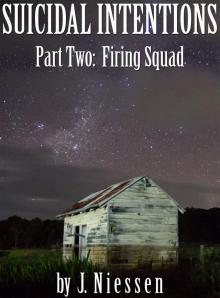 Suicidal Intentions: Firing Squad
Suicidal Intentions: Firing Squad_preview.jpg) Sparkles Adorning Destitution (Revised)
Sparkles Adorning Destitution (Revised)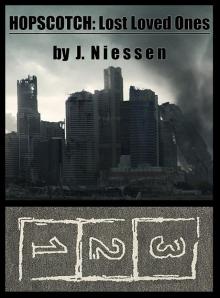 Hopscotch: Lost Loved Ones
Hopscotch: Lost Loved Ones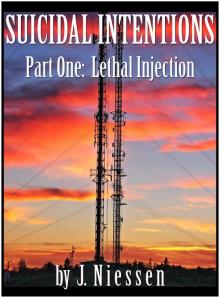 Suicidal Intentions: Lethal Injection
Suicidal Intentions: Lethal Injection_preview.jpg) A Portrait of Tragedy (Chapter 2)
A Portrait of Tragedy (Chapter 2)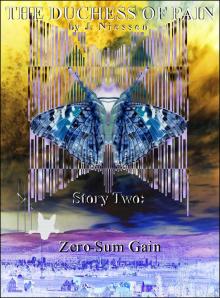 Zero-Sum Gain
Zero-Sum Gain_preview.jpg) A Portrait of Tragedy (Chapter 4)
A Portrait of Tragedy (Chapter 4)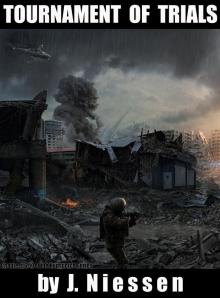 Tournament of Trials
Tournament of Trials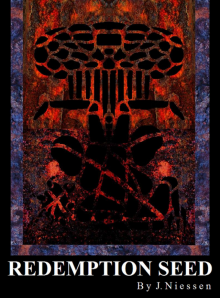 Redemption Seed
Redemption Seed_preview.jpg) A Portrait of Tragedy (Chapter 6)
A Portrait of Tragedy (Chapter 6)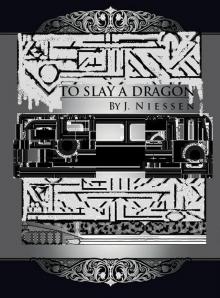 To Slay a Dragon
To Slay a Dragon Epic Chaos
Epic Chaos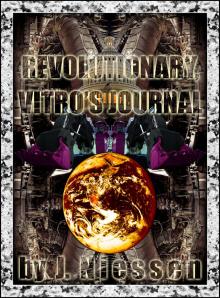 Revolutionary, Vitro’s Journal
Revolutionary, Vitro’s Journal Forsaken Ties
Forsaken Ties